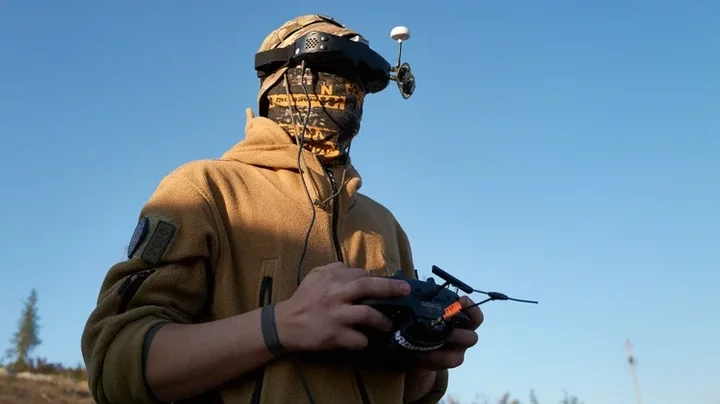
Unmanned aerial vehicles (UAVs) are now more prominent weapons of war for modern day engagements. They reduce the risk of losing soldiers by allowing military to fly aircraft remotely from a base, or can be piloted in tandem with manned aircraft as backup, escort, or reconnaissance for the main formation. UAV drones are, in many ways, shaping the modern landscape of military combat by completely shifting the stakes of it. However, one notable difficulty that designers run into with military UAVs is their operational range.
While it's possible to refuel an aircraft in flight, this technology still requires human intervention to be successful. It has only been four years since the first in-flight refueling where an unmanned aircraft refueled a manned aircraft. Additionally, the aircraft must stay within operational range of the remote flight station. Compared to typical military aircraft, unmanned drones are heavily limited in their operational ranges. That said, as of this writing, these are the U.S. military's drones with the longest operational ranges.
3. MQ-9B SkyGuardian
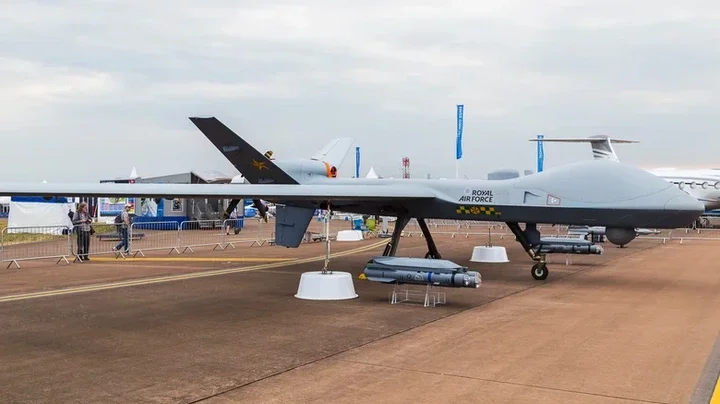
The General Atomics MQ-9B SkyGuardian UAV is one of the drones that can fly the farthest without refueling or leaving control range. It has a maximum operational range of at least 6,000 nautical miles - 6,904 miles - and a maximum altitude of at least 40,000 feet. The MQ-9B SkyGuardian is primarily used for reconnaissance and intelligence gathering, flying by using satellite connectivity, and has an operational time of at least 40 hours. The drone is designed to withstand all kinds of weather conditions, making it perfect for any scenario and not limited by unforeseen circumstances.
It has a multi-mode radar, an improved electro-optical/infrared sensor, and automatic take-off and landing capabilities. This aircraft has a longer wingspan than previous UAV models, and can integrate its systems with other systems, pods, and platforms that service members might use. It can carry a payload of 800 lbs internally or 4,750 lbs externally with nine hardpoints, eight wing-mount, and one centerline.
2. MQ-4C Triton
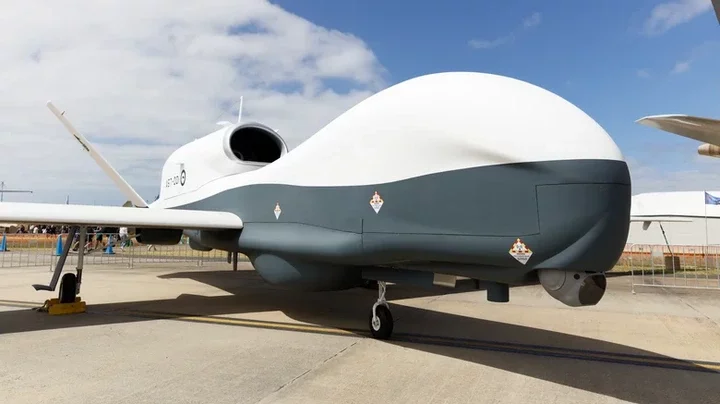
Made by Northrop Grumman as a maritime equivalent for the RQ-4 Global Hawk, the MQ-4C Triton is a prominent arm of the U.S. Navy's Broad Area Maritime Surveillance Unmanned Air System (BAMS UAS). The MQ-4C Triton typically flies alongside the manned P-8A aircraft, delivering crucial intelligence, surveillance, and reconnaissance (ISR) to the U.S. Navy with an 80% effective time on station. It has a maximum gross takeoff weight of 12,500 lbs, 6,000 lbs designated for fuel, and 4,750 lbs designated for weapons payloads. The drone has nine hardpoints, eight on the wings and one centerline.
The maximum range of the MQ-4C Triton is 8,200 nautical miles (9,400 miles), allowing it to autonomously cover large distances for missions. In flight, it can last up to 30 hours without refueling, and it can reach speeds of up to 368 miles per hour. The drone requires a crew of five to operate from the ground, an air vehicle operator, a tactical coordinator, two mission payload operators, and a SIGINT coordinator.
1. RQ-4 Global Hawk
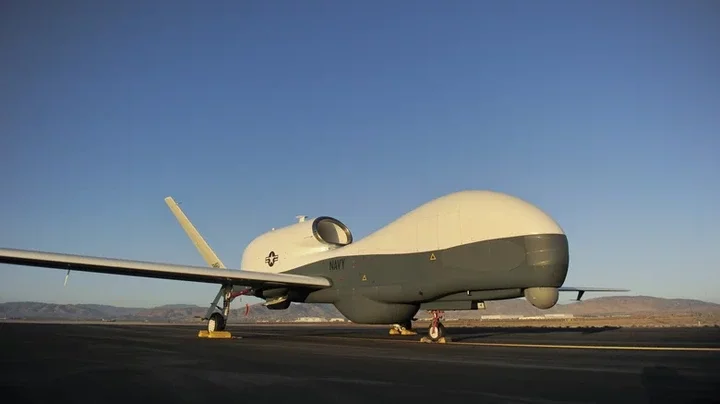
The drone in the U.S. military that can currently fly the furthest in a single mission is the RQ-4 Global Hawk. Another Northrop Grumman drone, the RQ-4 Global Hawk is a remotely piloted aircraft with advanced sensors that work in all weather conditions, allowing it to perform ISR duties day and night, rain or shine.
The drone is capable of persistent, near real-time coverage of its operational area with its imagery intelligence (IMINT), signal intelligence (SIGINT), and moving target indicator (MTI) sensors. It began its journey in the U.S. military as an Advanced Concept Technology demonstration in the mid-1990s. The aircraft has been deployed with the U.S. military to support overseas contingency as of November 2001.
The maximum range of the RQ-4 Global Hawk is a staggering 12,300 nautical miles (14,154 miles). The drone has a maximum takeoff weight of 32,250 lbs and weighs 14,950 lbs with nothing in it. Its maximum speed is 357 miles per hour, and it can fly as high as 60,000 feet.



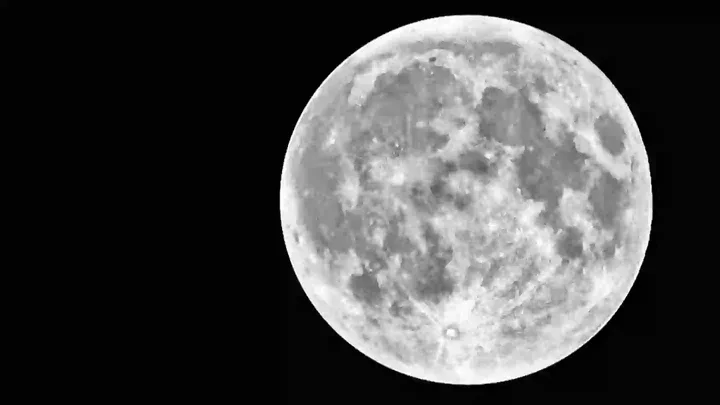

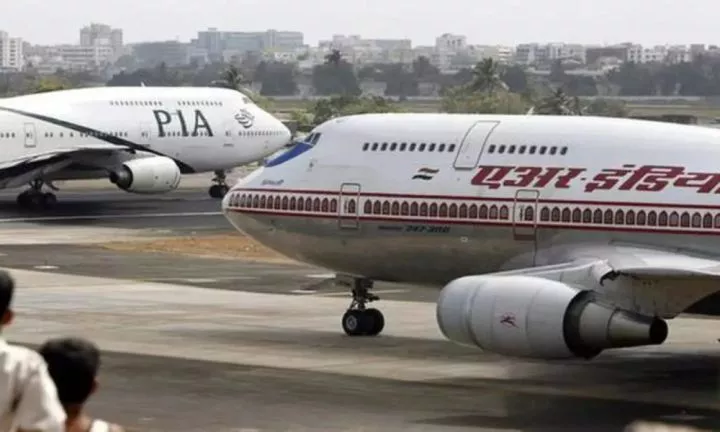
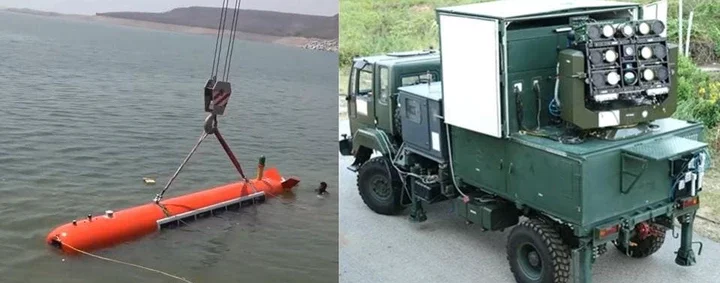
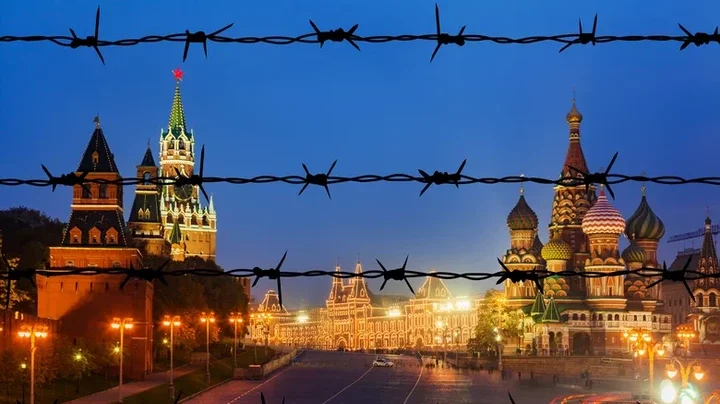










Comments